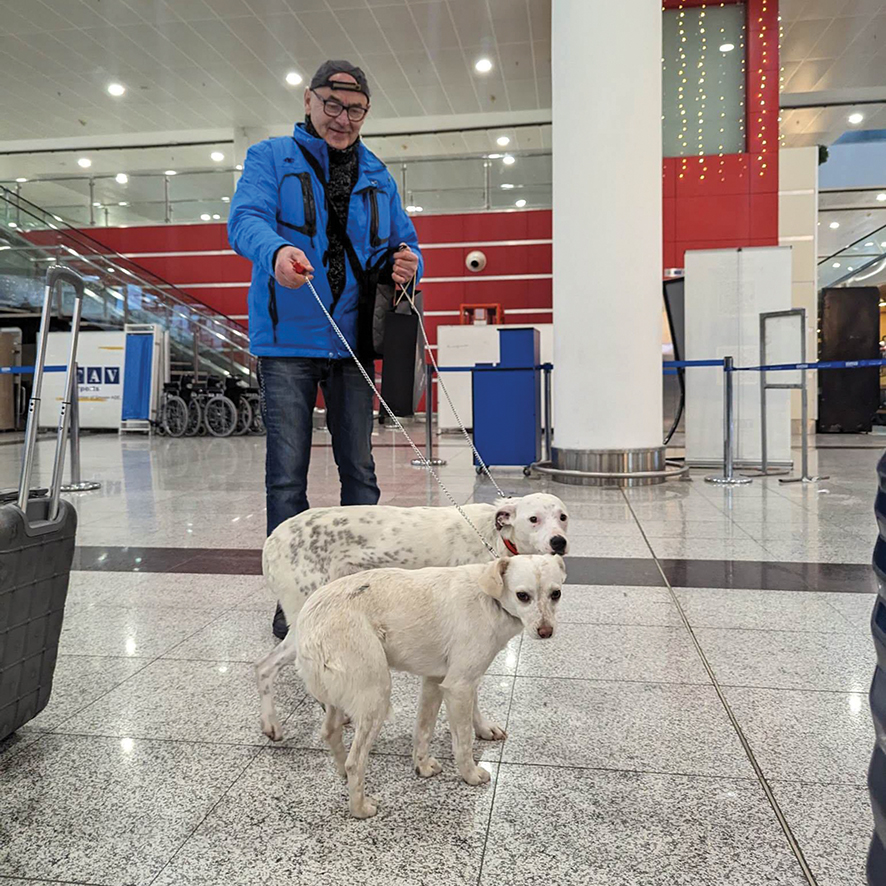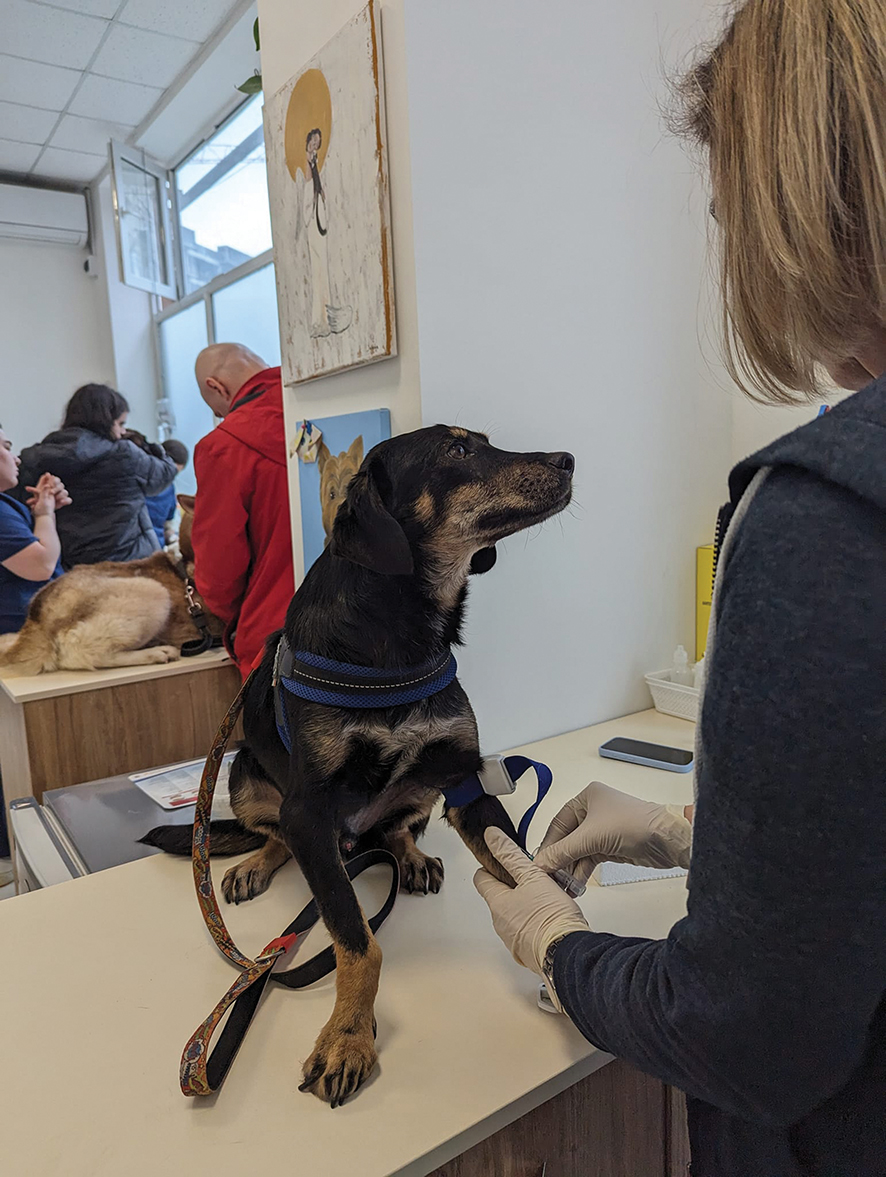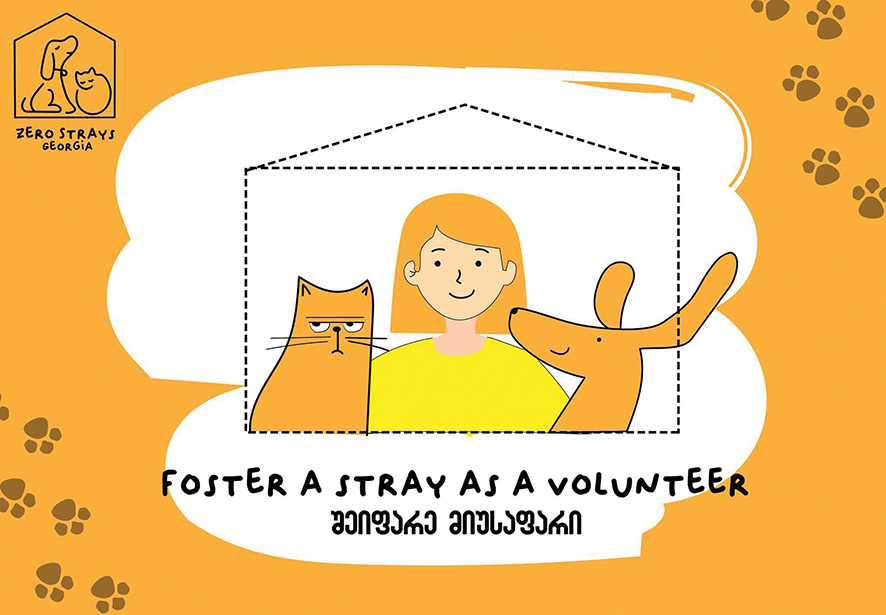Georgia currently has an estimated half a million stray (or street) dogs. One organization fighting this alarming trend is Zero Strays Georgia, which works to sterilize and take stray animals off the streets and find them homes. The organization has seen some positive progress since its inception, with slowly changing mentalities and new legislation for the protection of street animals finally drafted on February 14 this year by Parliament.
Founder of Zero Strays Georgia, Mariam Shekiladze, started helping stray animals in 2015 when she adopted her first dog with epilepsy. It was then that she really saw Georgia’s ongoing issue of dog overpopulation, and the one dog she saved quickly grew into a project that saved more and more. In the past nine years, Zero Strays alone has sterilized more than 1000 dogs and cats (both strays and pets), found homes abroad for more than 150 former strays, and is currently supporting eight families who are fostering strays looking for adoption. With the right legislation, though, their efforts will see even better results.
“If we have proper working legislation and good enforcement, if the government works hard on raising awareness to promote adoption, and they control all breeders through licensing, etc., there are many details, but if everything is done in combination, then it will be possible to not have any stray dogs at all within five years,” Shekiladze tells GEORGIA TODAY.

At the parliamentary briefing on February 14 where the draft law on stray animals was discussed, chair of the Environmental Protection and Natural Resources Committee, Maia Bitadze, said the draft law will, among other things, raise awareness about sterilization and harmful practices that allow strays to reproduce. She said current pet owners will have to begin registering their pets, and registration will have to be provided if the pet is taken into any agencies. Bitadze said this is to prevent the abandonment of animals on the streets.
Shekiladze told us that Zero Strays will be involved in all decisions being made by Parliament until the law is passed and put into place. She says both her organization and Animal Project, another group, are actively pursuing this legislation, and will be at the following seven sessions regarding it to discuss what and how things should be changed to ensure healthy animal and human welfare.

Zero Strays also operates in the rural areas of Georgia, where animal abandonment and low sterilization rates are high. Shekiladze explains that animal related organizations and government agencies exist, but they are all based in Tbilisi, so people living in the regions are struggling with their little to no resources. Every time she goes to her village near Zugdidi, she says, there are always new dogs struggling to survive, many of them living near terribly dangerous roads. She said she has often found animals that are sick, which have been hit by cars, or are suffering from disabilities. To prevent more animals from being born, or put into conditions like this, Zero Strays helps families sterilize their pets and stray dogs, while informing people why it’s important.
While the organization’s focus is to sterilize and neuter animals, they also put a big emphasis on adopting and fostering. Unlike traditional outlets, Zero Strays doesn’t give their strays to shelters after they’ve been helped; rather, they foster their animals until they find their forever homes. Shekiladze said they give an animal and a stipend to low-income families to take care of the animal until they can find someone to adopt them. This creates a win-win situation, as the family is receiving money while doing a good deed for the organization.
“Georgia is like a big shelter that’s overcrowded, and no-one wants dogs and cats,” Shekiladze says. “Animal lovers here already tend to have three, four, five animals, and they can’t take any more.”
Up until recently, Zero Strays has been paid out of pocket by Shekiladze and others volunteering with the organization. She said everything was fine until there were so many animals that they could no longer do it on their own, and that’s when the organization launched an official website and social media channels with a donation option, so the public with like-minded interests knows who they are and what they can do to help.
Since Georgian households are overpopulated with animals, and so many end up being homeless, Zero Strays also sends animals abroad, in particular to Europe. A volunteer who is flying somewhere agrees to take an animal with them, and Zero Strays arranges a meeting at the destination airport with another volunteer living there. This helps get the dogs to better homes, and allows the organization to partner with groups and individuals who live abroad to find veterinarians for rescues from Georgia.
Shekiladze says people’s mindsets have been changing toward strays particularly within the past three years. Five years ago, she found it difficult to feed strays or help them because the locals would laugh at the situation. However, now people are realizing the problem at hand and becoming more involved in trying to find a solution, she notes.
As to what people can do on an everyday basis to help, Shekiladze encourages us to feed strays around our workplaces and houses, because she says that when strays are fed, they are less aggressive. She also emphasizes the need to ensure dogs are neutered, sterilized, and vaccinated. By being neutered, the aggressiveness also decreases, so people will be more likely to adopt and welcome these animals. A good way of determining if a dog needs help is whether it has an ear tag – if a dog has one, it means they’ve had their shots.
“Even when Georgia has the right legislation, it will be very important to have public support,” Shekiladze tells us. “Many people are needed to solve this together, because the government alone can’t do everything.”
Shekiladze says she realizes it’s going to be hard for people to work toward this change, but after a few years, and a lot of dedicated work, the country’s stray animal problem could be resolved.
By Shelbi R. Ankiewicz















